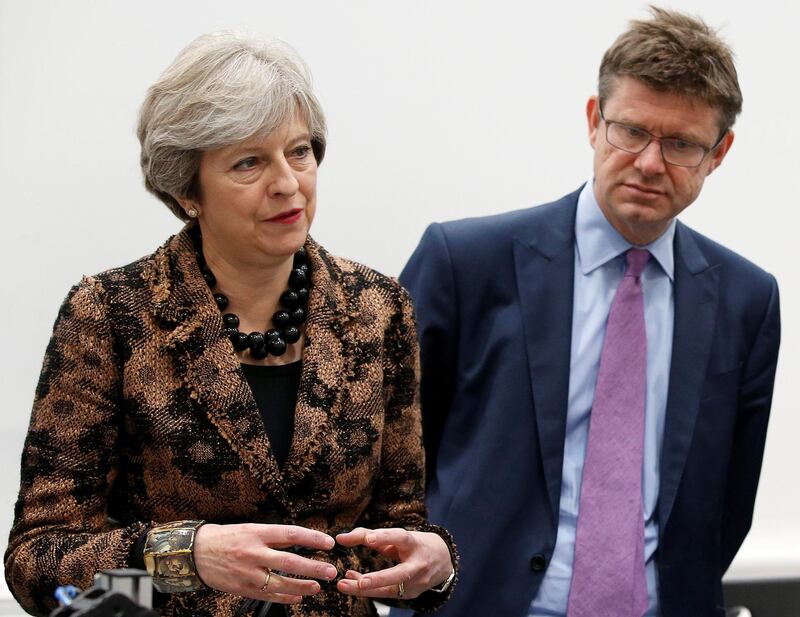Britain launched its first full industrial strategy for decades on Monday, as it seeks to tackle weak productivity and bolster businesses amid the upheaval caused by Brexit.
Theresa May first promised the plan when she became prime minister in July 2016, saying it would “get the whole economy firing”.
Her 255-page white paper – which adopts a hands-on approach to business that had largely been abandoned since the time of Margaret Thatcher in the 1980s – is being seen as an attempt to define her administration beyond Brexit, while also charting a new vision for the UK as it prepares to leave the European Union.
Ahead of the publication of the flagship policy, the government also announced that it had secured major investments from global healthcare company Merck & Co, known internationally as MSD, and German-based diagnostics company Qiagen.
While the value of the investments was not disclosed by either company, the Financial Times estimated it would exceed £1 billion.
UK business secretary Greg Clark said other investments will follow in the £64bn life-sciences industry, one of four to strike a “sector deal” between different industries and ministers as part of the new strategy.
Construction, artificial intelligence and the automotive industry are the other key sectors being targeted by the government, in the aim of “making the UK the world's most innovative nation by 2030".
The government said it will invest £725 million as part of its Industrial Strategy Challenge Fund, which comes on top of a previously announced £1 billion in spending on innovative industrial projects.
It also aims to increase spending on research and development from the current 1.7 per cent to 2.4 per cent of GDP within a decade, in line with the average in other developed economies.
_______________
Read more:
[ Brexit Britain slashes growth forecasts ]
[ Lobby group urges 'ambitious' Brexit trade deal ]
[ Brexit transition deal needed ‘urgently’, business leaders say ]
_______________
The strategy “heralds a new approach to how government and business can work together to shape a stronger, fairer economy,” Mrs May said in the foreword to the document. “At its heart it epitomises my belief in a strong and strategic state that intervenes decisively wherever it can make a difference.”
However, it met with a lukewarm welcome from former Conservative deputy prime minister Michael Heseltine, who said on Sunday said that the best industrial strategy for the UK would be to “stop the Brexit initiative”.
Mr Clark said Britain has some of the world's best universities and research institutions, as well as leading companies in sectors ranging from advanced manufacturing to financial services, life sciences and creative industries.
"But any serious strategy should address the weaknesses that stop us achieving our potential, as well as our strengths, and this Industrial Strategy does that," he said.
"Britain's productivity performance has not been good enough and is holding back our earning power as a country."
Last week, Britain's budget forecasters slashed their estimates for the UK’s growth over the next five years, citing reduced projections for productivity and Brexit headwinds.
Mr Clark said the new industrial strategy would strengthen infrastructure and the business environment in an effort to improve productivity.
In an announcement that was well-timed ahead of Monday's launch, Merck said it would open a state-of-the-art life sciences research facility in London by 2020, focusing on early bioscience discovery and entrepreneurial innovation.
The company said it viewed Britain as a world-leader in science, although a spokeswoman said Brexit raised "some very real concerns" for the supply chain, drug regulation and the ability to attract talent to Britain.
The US drugmaker intends to create 150 new research roles in London and move around 800 existing UK jobs to the capital.
Meanwhile, Qiagen said its plans to develop a genomics and diagnostics campus in Manchester, northern England, had the potential to create 800 jobs.
The vote of confidence in Britain's life sciences sector was welcomed by the government after the news last week that the European Medicines Agency would move from London to Amsterdam when Britain leaves the EU in March 2019.
Business groups welcomed the new strategy on Monday, although they warned that the focus must now be on delivery.
“This announcement shows the government has its eye firmly on the horizon, not just the next few yards,” said CBI Director-General Carolyn Fairbairn.
“The hard work starts now. Today’s announcement must be the beginning of a strategic race, not a tactical sprint. And it needs to last. This is a time for consistency and determination, not perpetual change with the political winds.”
#IndustrialStrategy must be the beginning of a strategic race, not a tactical sprint. The hard work starts now. https://t.co/rMH3jzquXg
— Carolyn Fairbairn (@cbicarolyn) November 27, 2017
Brexit remains by far the biggest concern for British companies and multinationals with operations in the UK. With only months to go before many businesses need to make decisions on future investment, they are eager for clarity on how Brexit will work.
However, talks with the European Union have made slow progress so far, with the so-called ‘divorce bill’ emerging as the key sticking point, together with citizens’ rights and the border with Ireland.
Mrs May needs to demonstrate that she’s made progress in all three areas before her 27 EU counterparts will agree to advance from exit negotiations to discuss future trade, as well as a two-year implementation period to provide clarity for business.






